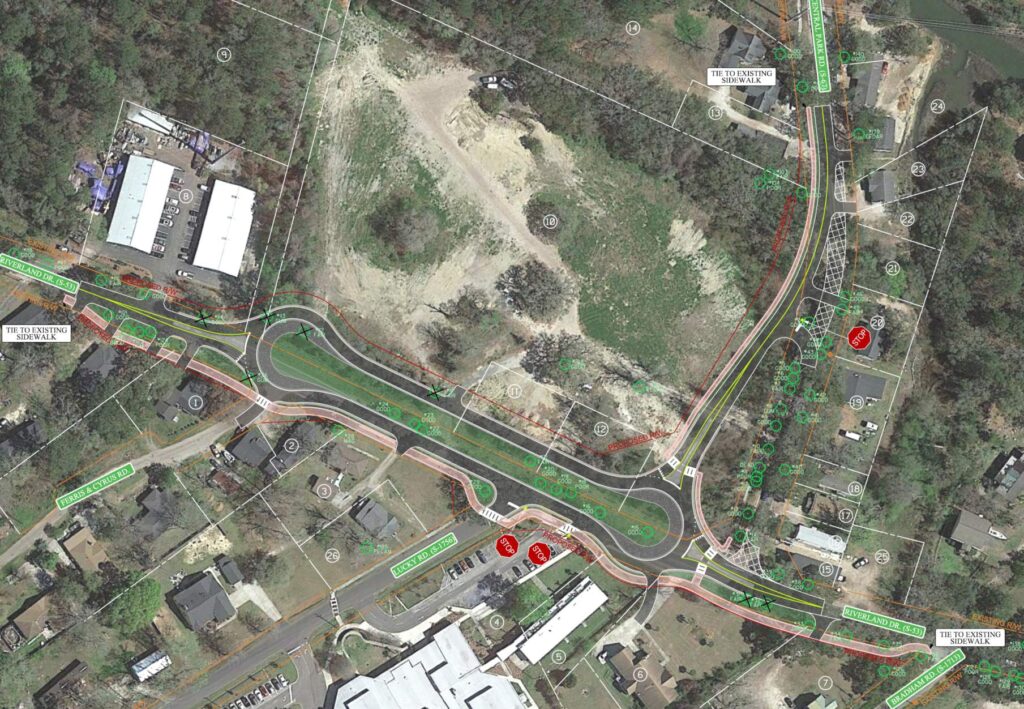People Spotlight Series: Meet Emily Swearingen
Our People Spotlight series gives you an inside look at our technical experts around the world. We are highlighting global transportation staff each quarter and providing an insight into their inspiration and work.
Emily Swearingen is associate vice president leading South Carolina’s Transportation Business Line and serves as site leader in Greenville, South Carolina. Since joining AECOM in 2007, she has expanded her experience to managing a wide variety of multimodal transportation projects, as well as port, ITS, fiber and other projects. She focuses on “hearing” the client and then delivering projects that meet their needs (and budget) and is always up for a challenge. She leads her teams following servant leadership, and never minds rolling up her sleeves to get the job done. She is happily married to her high school sweetheart, lives on a farm and is the mother of 5 awesome kids.
Tell us what inspired you to join the industry
While attending a small rural high school, I got to meet a civil engineer whose job was to design and coordinate traffic signals. I was so intrigued with the work they did and how it impacted so many people. Shortly after that, I decided that was what I was going to do and didn’t have a plan B, which meant I would have to get accepted at the only engineering school in the state, Georgia Institute of Technology. Once I started co-oping, I learned there were lots of ways to be a transportation engineer and got my first job doing roadway design for a local infrastructure firm in Atlanta, Georgia.
What is your favorite AECOM project that you’ve worked on and why?
I think my favorite project has been an intersection improvement we were designing in the Low Country of South Carolina. It had so many unique challenges with more than a dozen hundred-year-old live oak trees, an elementary school, lots of traffic and safety issues, as well as heirs’ properties. Our team really worked together to come up with alternatives that were out of the box, improving traffic flow and safety, while saving trees and minimizing impacts to the properties.
When alternatives were presented to the public, there was lots of participation, interest and support. I loved how our team worked together, developing really creative solutions such as an elongated roundabout, which was one of three alternatives developed to address operations and safety issues at an existing intersection, while minimizing impacts to multiple, more than 100-year-old live oak trees, and improve ingress/egress to an existing elementary school located less than 300 ft from the intersection. Ultimately the scope of the project changed as the county council’s priorities changed, but I loved the challenge of solving a problem that did not have an apparent answer, thinking differently to find a solution and ultimately getting the public’s buy-in of our ideas.

Tell us a story of how your work positively impacted the community.
I have been fortunate to work on 15 Safe Routes to School infrastructure improvement projects in South Carolina as project manager, and on several as the lead engineer. I got to sit down with the school principals, parents and staff for each one of the schools and ask them what they saw needed to be done to make getting to and from their schools safer. We took notes, did a field visit and developed plans to implement those items based on the priority. Items we addressed varied widely with most schools needing sidewalks and Americans with Disabilities Act ramps, and others needing lighting, bicycle racks, crosswalks, traffic-calming speed humps or raised intersections, signals, shared use paths, fences and improved signage. These were not high-profile or high-dollar projects for that matter, but they made a big impact on the school and the communities they were in. I still drive by and look at them when I am in the area to see students using them every day.
What career advice would you like to share?
First is look for opportunities to serve in professional organizations. These give you access to other leaders in your field including clients, and allow you to lead teams or planning efforts that people remember.
Second is show up to work every day and do the very best you can. I honestly believe, if we are all doing the best we can, we will win enough work, deliver enough projects and continue to grow, as it will motivate our coworkers and get the recognition of our clients and when you notice someone who isn’t doing their best, ask them how their doing, help them if they need it, and teach them what they need to know.






